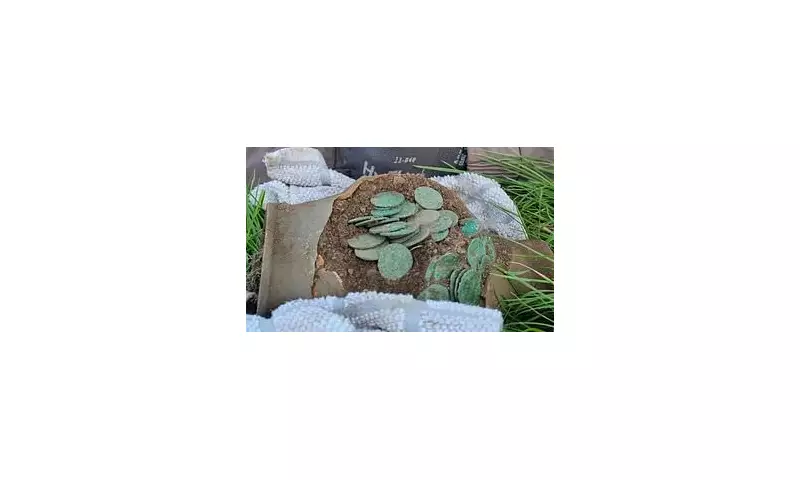
A metal detectorist in Wales experienced the thrill of a lifetime followed by a night of sheer anxiety after unearthing the largest ever hoard of Roman coins discovered in the country.
The incredible find, consisting of approximately 15,000 bronze coins dating back to the Roman period, was made in a field in Monmouthshire, leaving the amateur archaeologist both ecstatic and overwhelmed by the significance of his discovery.
The Moment of Discovery
What began as a routine metal detecting session turned into an historic moment when the detectorist, whose identity remains protected, stumbled upon the first signs of the buried treasure. As he carefully excavated the site, the scale of the find became apparent - thousands upon thousands of ancient Roman coins, preserved beneath the Welsh soil for centuries.
A Sleepless Night Guarding History
Faced with the responsibility of safeguarding such an important archaeological treasure, the finder made an unusual decision. Rather than leave the coins unattended or immediately contact authorities, he chose to sleep in his car alongside the precious hoard, gripped by fears that the historical treasure might be stolen if left unguarded.
"I didn't sleep a wink that night," the detectorist later confessed to archaeologists. "Every sound outside the car made me jump. The weight of responsibility was overwhelming."
Archaeological Significance
Experts from the Portable Antiquities Scheme in Wales have confirmed this as the largest Roman coin hoard ever discovered in Wales. The coins, primarily dating from the late Roman period, offer fascinating insights into Roman Britain's economic and social history.
Archaeologists note that such substantial hoards often represent wealth hidden during times of uncertainty or conflict, providing a tangible connection to the lives of people living in Roman Wales nearly two millennia ago.
What Happens Next?
The coins have now been safely transferred to museum experts for cleaning, identification, and preservation. Each coin will be carefully documented and studied, potentially revealing new information about Roman activity in the region.
Under the Treasure Act 1996, the find will be formally declared treasure, with museums given the opportunity to acquire the hoard. The metal detectorist and landowner are likely to receive a reward based on the market value of the discovery.
This remarkable find serves as a powerful reminder that history still lies waiting to be discovered beneath our feet, and that ordinary people can sometimes make extraordinary contributions to our understanding of the past.





